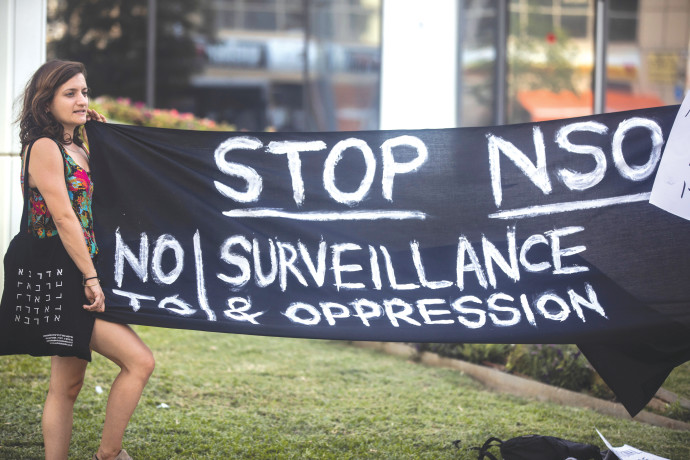Israel has asked the US administration several times in recent months to remove the cyber company NSO, developers of the PEGASUS spyware software, from the US Commerce Department’s blacklist, according to Walla, two senior Israeli officials, and a senior American official.
The officials said the Biden administration was considering the Israeli request. However, another senior government official denied the allegations, saying that when Israel raised the request, it was made clear that the White House would not intervene.
If the Biden administration decides to remove NSO from this blacklist, it would be a dramatic change in policy that would likely draw harsh criticism from within the Democratic Party, Congress and the American cyberdefense community.
“We told the Americans that they should not tear down NSO,” a senior Israeli official told Walla. “Even if the company had some problematic customers, it does not mean that the company’s products and capabilities are no longer needed.”
NSO has in recent months hired two US law firms that work with the Commerce Department regarding the commerce list.
The company’s lawyers have appealed the decision to put NSO on the blacklist and asked for a hearing, but so far, apart from an exchange of letters with the Commerce Department, there has been no progress.

In recent years, NSO has become a strategic asset for the Israeli defense community, especially for the Mossad. The company was used, among other things, to promote secret ties with countries with which Israel has no diplomatic relations, and to strengthen intelligence ties with countries with which Israel does have them.
At the end of last year, after the Biden administration decided to impose sanctions on NSO, an internal discussion took place in the Israeli government regarding the degree of assistance to be provided to the company, and whether Israel should officially contact the US administration on the issue.
NSO heads then sent a letter to the prime minister, foreign minister and defense minister asking for their intervention, and warning of the consequences of the company’s future sanctions.
Initially, a decision was made that Israel would act proactively with the US to change the decision, but at a later stage the policy changed and Jerusalem began to put pressure on the Biden administration.
NSO blacklisting
In November, the Commerce Department added NSO and another Israeli offensive cyber company, Candiro, to the blacklist of companies operating in a manner contrary to the interests of national security and foreign policy.
This was the first time that the US government imposed sanctions on Israeli cyber companies that receive an export license from the Israel Defense Ministry.
The Commerce Department has determined that NSO provided spyware to governments that used it against journalists, human rights activists and diplomats at US embassies around the world.
As part of the sanctions, any American company that wishes to enter into a transaction with NSO must obtain a license from the department.
In July, a series of investigations published in international media revealed that a number of countries – including Hungary, India, Morocco, Mexico and Saudi Arabia – used NSO’s Pegasus software to spy on opposition activists and journalists.
